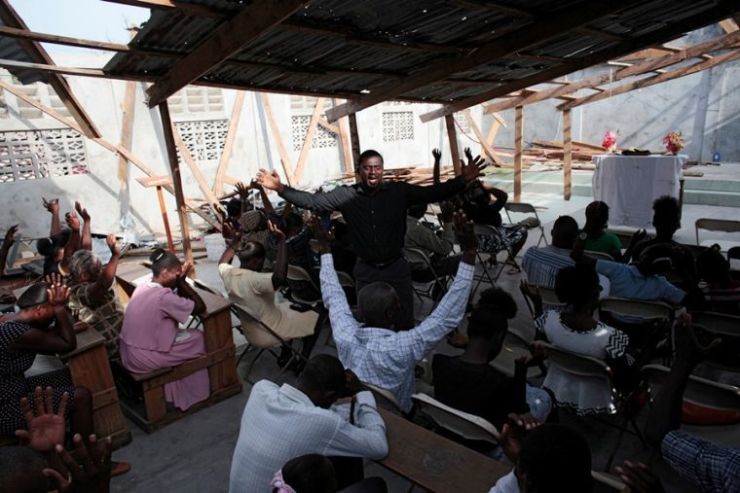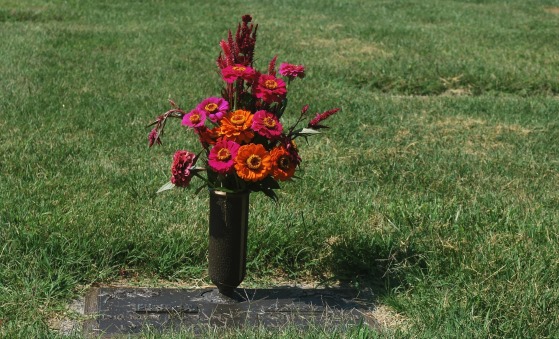
Faith or no faith, this last year has been difficult for many of us, so it would be little wonder if people are asking the question: 'why?' And especially, 'why God?'
'Why would a God of love allow such things to happen? Why does a good God allow suffering?'
These are age-old questions and ones that are not easy to answer, even for the most well-versed theologians.
Dr Roger Abbott, Senior Research Associate in 'Natural' Disasters at the Faraday Institute, wants to help Christians and non-Christians alike think through some of the possible answers to these challenging questions.
But more than that, he wants people to see that God really is there in the midst of it all carving the most unlikely good out of often terrible and heartbreaking situations. After all, it's what he's witnessed firsthand in years of speaking to survivors of natural disasters.
It is with this perspective in mind that he has penned his new book, "What Good is God? Crises, faith and resilience", co-authored with Cambridge geophysics professor Robert Whyte, a book that doesn't simply present their views on the subject but the views of survivors themselves.
Dr Abbott speaks to Christian Today about the relationship between God and suffering, and why the truth is so much better than what we may naturally be inclined to think.
CT: The title of the book, "What Good is God?", is a question even mature Christians can struggle with. How can we reconcile our faith in a God who is good and with a God who also allows tragedies and terrible things to happen in our lives?
Dr Abbott: As you say, that question has been asked over many centuries; nearly every generation has asked it. In some ways, no one has ever really been able to come up with an answer that completely satisfies; otherwise we wouldn't still be asking the question!
But in my own research into so-called 'natural' disasters, what has been so remarkable to me is that for those who have suffered such incidents, they weren't really asking that question because for them, the cause of their disaster was very self-evident. That is, that this wasn't something caused by God but was rather something caused by human error or human ignorance.
That's been a recurring theme in so much of the work I've done to the extent that my strapline now is that 'there's no such thing as a natural disaster, natural disasters are human'. There has admittedly been some pushback from Christians towards my perspective on this but I continue to bang this drum because that is where the evidence is pointing.
Some people say 'well, no, it can't be only human, there must be some kind of divine involvement in this and therefore there must be some kind of divine problem that we need to answer'.
But I would say we need to be careful with that kind of perspective because of course God is involved in these things; He's creator, sovereign, and governs all life. But He also, as God, has given us humans huge responsibilities and therein is the problem. Because if you look carefully at things like earthquakes, floods, hurricanes or even viruses, many of these natural occurrences and even hazards are to some extent necessary for the wellbeing of life on earth. Believe it or not, in the bigger context, these all contribute in their own way to sustaining a healthy earth.
So the real question is: how have they become disasters and killers? Wherever you look, it's because we as human beings have lost the capacity and wisdom to know how to steward God's creation in a way that is safe - and it can be stewarded safely. How did 230,000 people die in a matter of seconds in Haiti? Was it because God did that? No. It was because so many buildings were not built properly.
So I'm a great believer in the human aspects of disasters because these are things that, if we wanted to, we could put right very quickly. And the outcomes from that would be very different from what we are witnessing and have witnessed. My take is not popular but it's what I would call an evidence-based take.
CT: The book seems very timely and prophetic given what's happened this year.
Dr Abbott: Yes, very much so. The process for the book started in the summer of 2018 when there was no hint of coronavirus. There had of course been Ebola and Dr Linda Mobula addresses that in her chapter of the book, but there was no coronavirus at that time.
The original publication date was supposed to be January 2020 and we were disappointed when for publisher reasons, it had to be moved back to November 2020. But in the end it gave us time to add in an additional chapter on Covid to bring the book completely up to date. So while we were disappointed at the time, we can see now in hindsight how well it's worked out.
Read the full article here.




